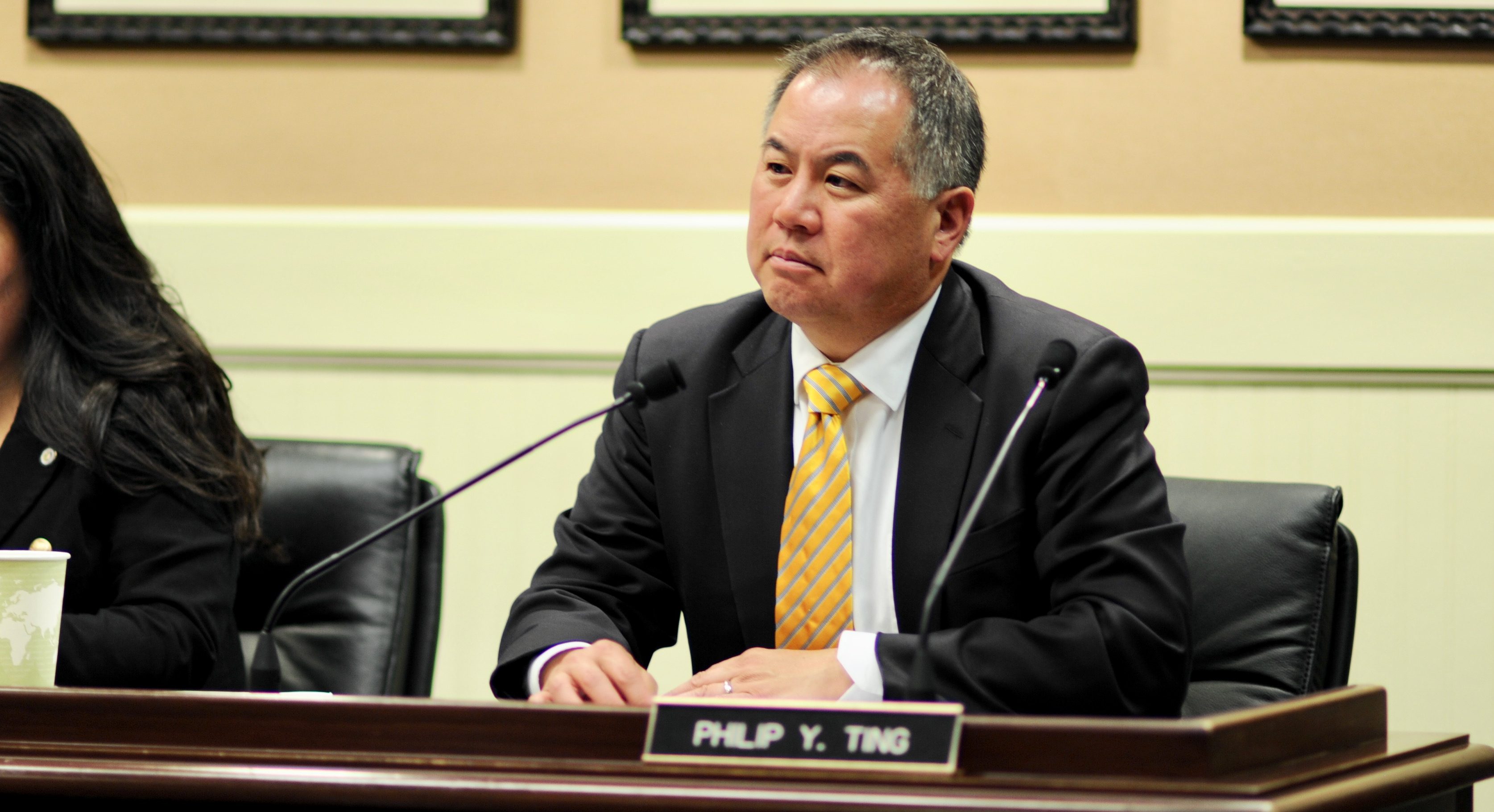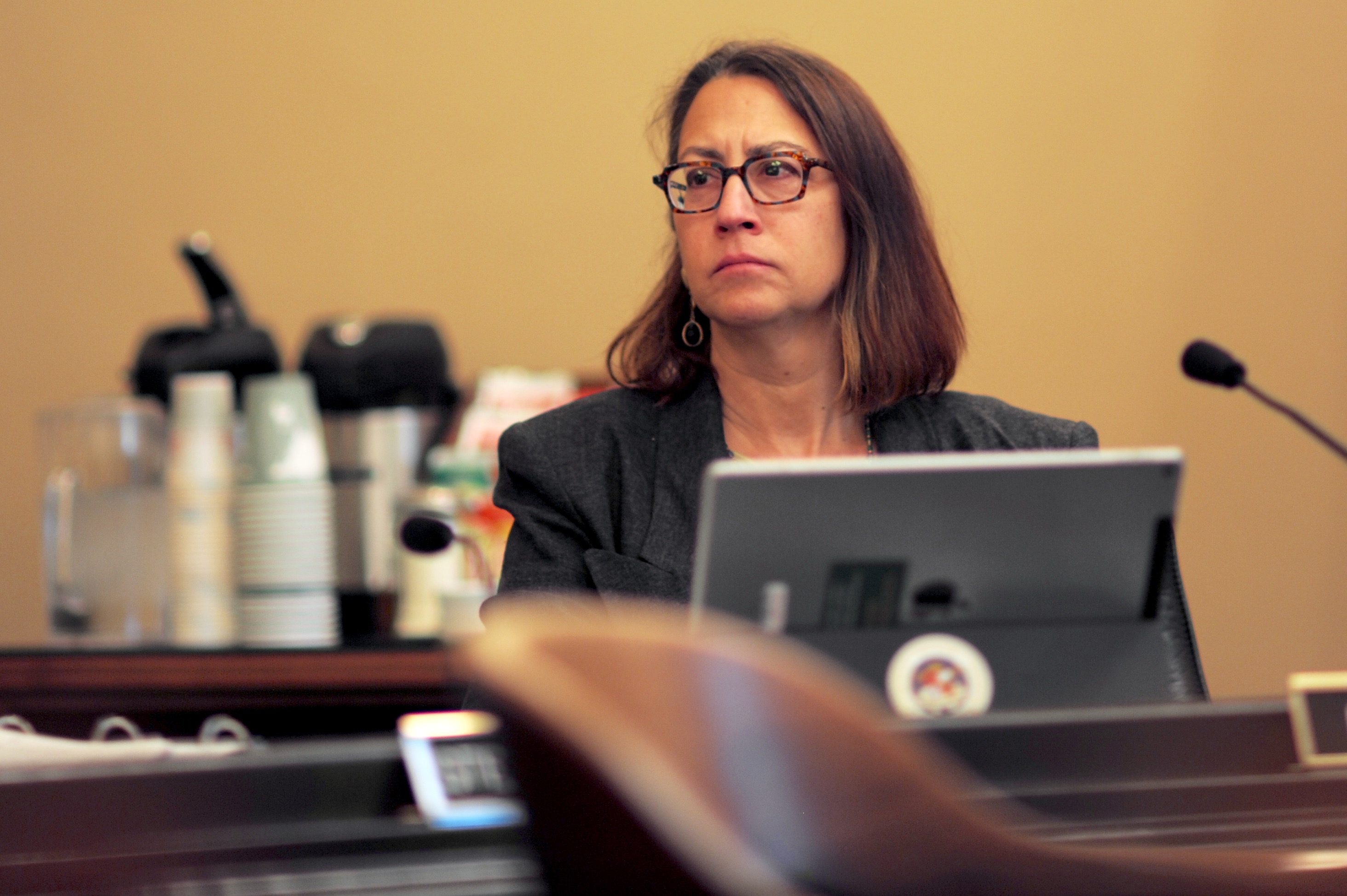
Senator Monique Limón. (Kevin Sanders for California Globe)
Bill To Require Employers Include Pay Ranges in Job Advertisements Passes Assembly Committee
DFEH pay data reports would also be made public under SB 1162
By Evan Symon, June 16, 2022 12:58 pm
A bill that would require employers to put in a pay range for all advertised jobs and send in pay data reports to the Department of Fair Employment and Housing (DFEH) continued to pass through the Assembly this week despite fierce opposition from many lawmakers.
Senate Bill 1162, authored by Senator Monique Limon (D-Santa Barbara), would require that all private employers with 100 or more employees submit a pay data report to the DFEH on or before the second Wednesday of May each year. Another pay data report would be required if employers have 100 or more employees hired through outside contractors or for each establishment if employers have more than work outlet.
These pay data reports would include information such as the median and mean hourly rate for each combination of race, ethnicity, and sex within each job category. A federal EEO-1 form would not be permitted as a replacement for the state data report under SB 1162. Employers with 1,000 or more employees would see the pay data report be published online on a DFEH website beginning in 2025, with the employee number threshold going down to only 250 by 2027. All of these public pay data report releases would only cover the employers and would not publish any more private information about employees.
SB 1162 would also include many pay scale and labor changes, including requiring employers to provide employees a pay scale for their position when requested, requiring employers of 15 or more people who advertise jobs on third party websites to put in a pay scale on all job advertisements, and would require employers to keep a job title and pay history for all employees that can be accessed by the Labor Commissioner.
If any of these provisions in the bill are not met, the Labor Commissioner would be allowed to investigate any alleged violations and order civil penalties if true. Employees would also be allowed to sue if aggrieved. If employers don’t file pay data reports, they will have to pay $100 per employee, and then $200 per employee for all subsequent failures to file.
Support for, opposition against SB 1162
Senator Limon wrote the bill due to many employee complaints that they didn’t know what what the pay range was for people in their position, as well as complaints from job seekers who wanted to know how much the job would pay before applying. And, while pay data reports are already law in California, the added provisions of contracted position reports and the reports going public to help build a better range would be completely new.
“Many Californians can relate to this. They see jobs and they wonder what the salary range is,” said Senator Limon in a statement last month. “And that’s what we’re trying to do. We’re trying to say, just offer a salary range so people know what they’re walking into and how to negotiate.”
This sentiment was echoed by the California Chamber of Commerce, who noted that SB 1162 would also lead to many lawsuits and would be overly broad to show anything of value.
“SB 1162 [is] a job killer bill that expands pay data reports and will encourage litigation against employers and undermine their ability to hire,” the CalChamber said earlier this year.”Of significant concern to the CalChamber … is that SB 1162 requires that pay data reports be public, so that someone could look up any company and see the data report that was submitted. A similar bill introduced five years ago, AB 1209, also sought to require the publication of pay data, and a vocal class action PAGA attorney stated in an interview with the Sacramento Business Journal that if pay data is published online, then companies would be hammered with lawsuits against them.”
“In addition to the concerns about the potential litigation this bill would create for employers, the CalChamber also is concerned that the data requested is overly broad. The job categories covered by this bill include professionals and administrative staff, which will each encompass a lot of people.”
“The CalChamber’s concern is that this overly broad data is not going to meaningfully show anything and will not be able to show whether unlawful or inappropriate practices are going on. It will just be used by plaintiffs or the media for their own purposes.”
SB 1162 is currently awaiting to be heard in the Assembly Labor and Employment Committee and is expected to move on to an ultimate Assembly vote later this year.
- Plastic Ban Bill Passes Senate Committee - April 19, 2024
- ‘Fix Prop 47’ Initiative Receives Over 900,000 Signatures – Qualifies for November Ballot - April 18, 2024
- Google Fires 28 for Anti-Israel Sit-in at Work - April 18, 2024





Just another bill to encourage employers to move to Texas, and kill middle class jobs. The Democrats will not be satisfied until there are zero middle class people in this state.
How about we let a different political party run this state for a change so we can get jobs back?
Keep your G.D. mitts off private industry, Democrats. You do enough damage screwing up government.
Wasn’t it overreach embarrassment enough to have the courts overrule you corporation board make-up mandates? None of you have a lick of business sense. You just need more victims to stay elected. Get out of the way.